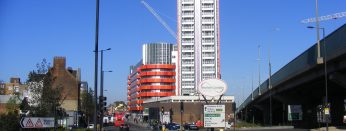The Communities and Local Government Select Committee conducted an Inquiry on Homelessness in early 2016.
In its report, the Committee urged the Government to introduce new duties on councils in England to improve support for individuals and families who face housing difficulties or homelessness. The Committee noted that ‘treating someone as a human does not cost money’ and found ‘too much evidence of councils and their staff treating homeless people in ways that are dismissive and at times discriminatory’. The Committee has now taken the unusual step of giving its support to a new Bill, to be considered in the Commons in October 2016. The Homelessness Reduction Bill is being presented by Bob Blackman, Conservative MP for Harrow East.
The most important of the recommendations from CSAN’s perspective are those aiming to improve the quality of housing advice and support in England. We agree with the Committee’s underlying premise that such support should respect the human dignity of each person who seeks help, regardless of whether the law deems that person to be in ‘priority need’.
The Committee goes further by recommending increases in the levels of support the public sector must provide, for example in mental health services for people who are homeless, developing more homes for affordable rent, and support for women who have experienced domestic violence. The Committee has recommended a range of improvements in national data collection and monitoring of homelessness, aimed for example at better identifying people who having housing difficulties unknown to local authorities. While this data collection may be helpful, it will also be important to assess whether English councils reduce or dilute support in other areas of their spending to meet any increased costs arising from new legislation. As the Committee acknowledged, councils and other services face combined pressures from rising numbers of people who are homeless, the impact of reduced revenue to spend, and varied housing market conditions across England.
We share the sense of ‘crisis’ expressed by the Committee and homelessness charities about levels of homelessness that have risen for six years running. From 2015-16, there was a 30% increase in people sleeping rough in England. A recent report from the Greater London Authority noted that 8,096 people were found sleeping rough in London from April 2015 to March 2016 (7,581 in 2014-15). 5,276 were new rough sleepers in London, and six London boroughs recorded more than 300 rough sleepers in the year. Of the London total, 41% were from the UK, and 47% from continental Europe. Contributing factors include sustained reductions in public spending on homelessness prevention since 2008, steep rises in private sector rent, and mismatch between housing supply and demand.
The Bill is timely, and echoes a similar initiative of the Welsh Government in 2014, the outcome of which has been a significant improvement by Welsh councils in preventing people from becoming homeless – we hope legislation for England would achieve similar success. Homelessness prevention is best for individuals and serves the common good, creating significant long-term savings to the public purse. We hope local authorities will increasingly recognise this: in decision-making, in their interactions with people who seek their help, and likewise in the quality of partnerships with voluntary organisations that work on homelessness prevention.
CSAN’s submission to the Inquiry (May 2016) is available to read here.




